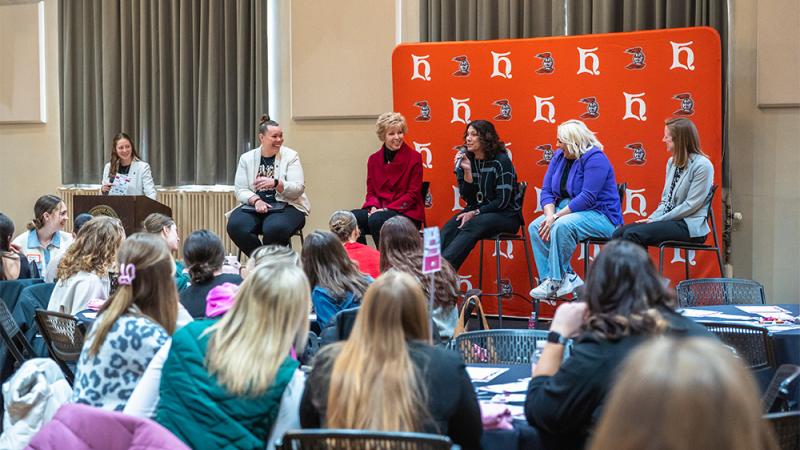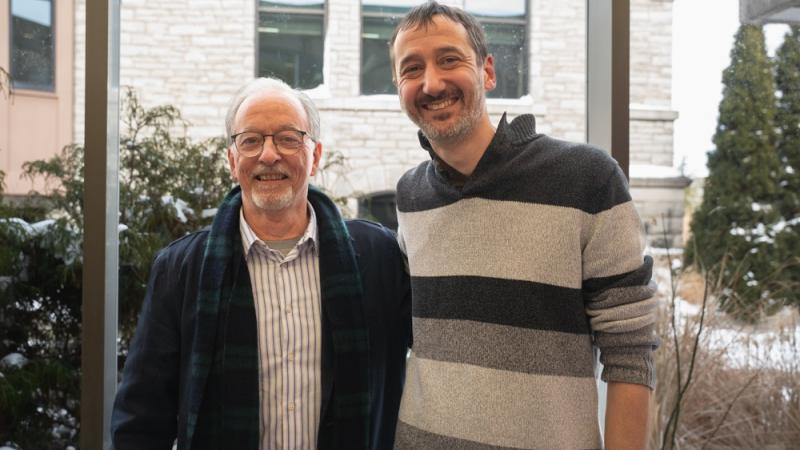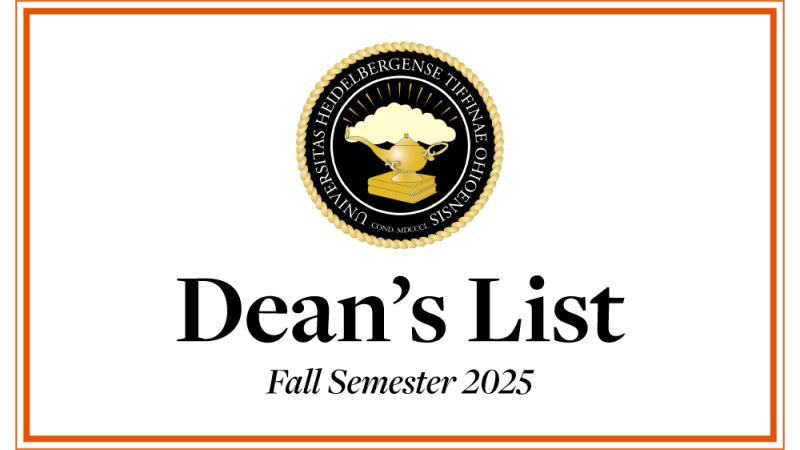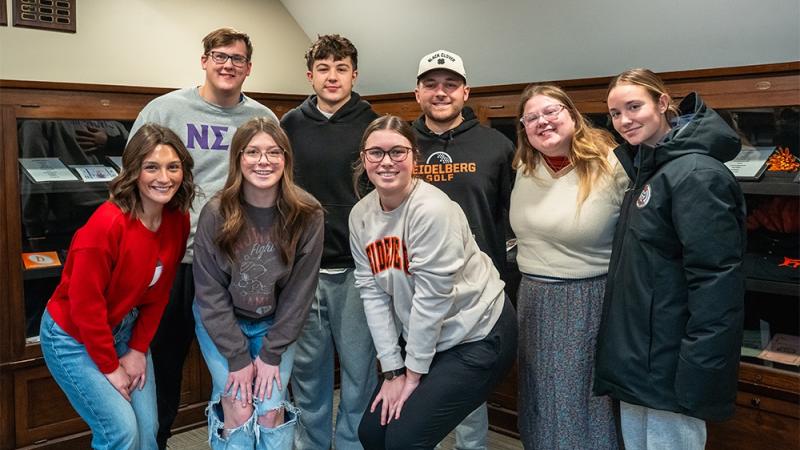Holocaust survivor explores concept of evil
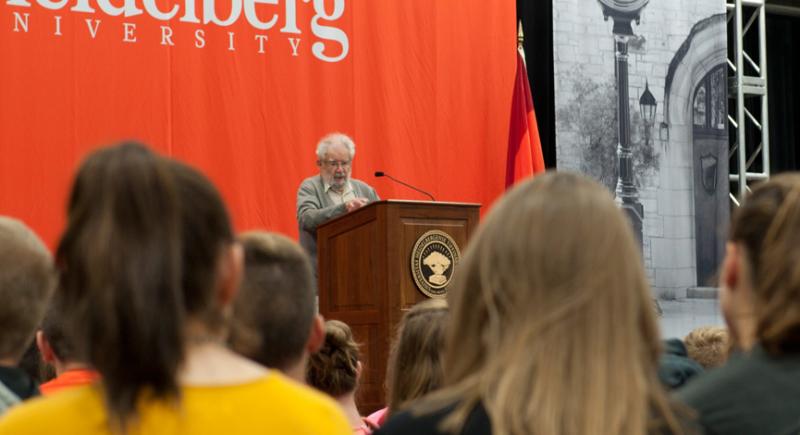
Prisoner #64757 lost 14 members of his family in the Holocaust. As a 15-year-old who was forced into several concentration and work camps, Holocaust survivor Dr. Walter Ziffer witnessed unspeakable atrocities that have stuck with him throughout his life. Now 90 years old and a noted author, theologian and professor, he has spent many years trying to understand the concept of evil.
Ziffer traveled to Heidelberg from his home in North Carolina as the guest of the eighth annual Lichtman-Behm Genocide Lecture Series this week. He gave two thought-provoking presentations while on campus: one to about 300 students, faculty and staff and the community and one to about 800 local/area eighth through 12th graders.
Ziffer, born in Czechoslovakia, said he feels an obligation to share his experiences and insights from his Nazi captivity, which he described as “hell.” At Brande, the second camp where he was imprisoned over three years, he was assigned to be the personal servant of the camp commander “but that didn’t turn out the way I thought it would.”
There and at other camps, he witnessed horrible inhuman conditions, starvation, back-breaking physical labor, beatings, illness, suicide and brutal murders. “We are talking about evil here,” Ziffer said. “The violence I witnessed is absolutely indescribable. There are no words available. … It is ingrained in my mind. I will never forget it.”
As Ziffer became an adult, he emigrated to the U.S. in 1948 and studied engineering at Vanderbilt, later shifting his career to theology. It was at this time that he began to contemplate the phenomenon of evil – the underlying theme of his talks on campus.
“How is it possible to become inhumane entities … like the Nazi criminal killers and killers we hear about today,” he wondered. In his search for answers, he turned to books, including James Waller’s “Becoming Evil: How Ordinary People Commit Genocide and Mass Killing.”
The question posed in Waller’s book “keeps me awake at night more often than I care to share,” Ziffer said. He has concluded that all humans have the innate capacity for good and evil.
Human instincts can be influenced and modified by socialization and other factors such as a person’s worldview, propaganda, a group mentality and other cultural models, he believes. “It’s up to us to nurture the good so it diminishes the bad,” Ziffer said. “We are able to change if we have a certain will power to do so.”
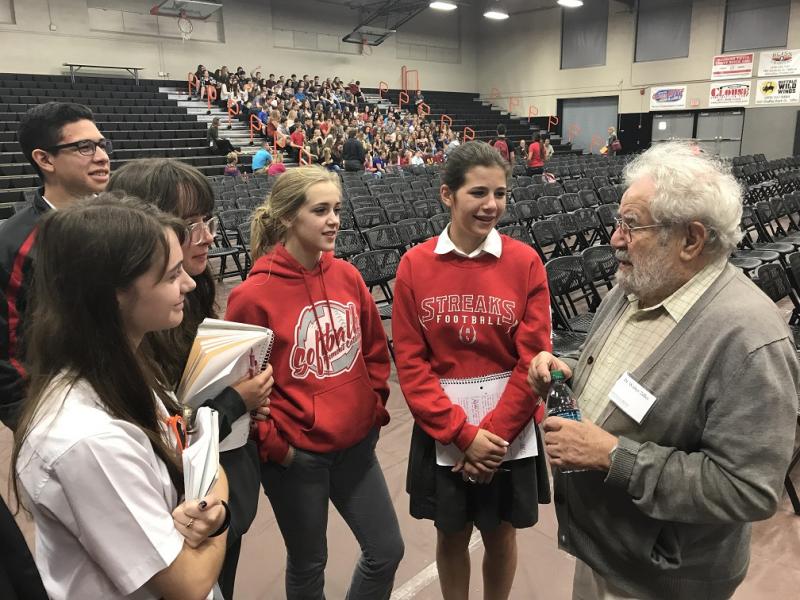
For his younger audience, Ziffer explored the roles of victim, perpetrator, bystander and hero in response to evil. The decision about which to be lies within the individual in most cases. He asked the students to think about how they’d answer this question: “Which would you like to be?”
“You have to make the decision. I have presented you with extremes. Your choices will depend on what you understand the meaning of your life will be. … Choose to be good."

